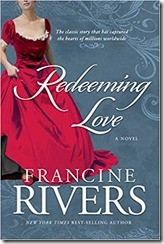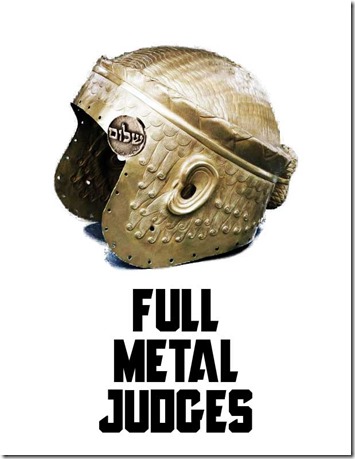Archive for the ‘delicious’ tag
Hosea: Secretly Delicious
Last week I talked about Revelation and how much easier it is to enjoy if you can just unlearn all the stuff that people say about it which makes no sense at all for a book written in the time and place it says it was written in for the people it says it was for.
This week, I want to make the case that Hosea is in very much the same situation.
Now of course Hosea does not have the same community surrounding it pushing a weird eschatological interpretation. It’s a lot more common for Hosea not to be talked about at all. But when it is, it is only the first three chapters, and they are talked about in a very particular way. Hosea marries the terrible horrible prostitute, and just utterly loves her into submission. Along the way he solves all her problems and all her character defects. Because he is just do incredibly loving. It’s fine. It’s like plain yogurt. It’s not offensive, but it’s not interesting either. One note, flat characters. A story in 1 act.
 There is a reason we read it this way. Because we aren’t actually read it. Like it or not. When most of us open Hosea we aren’t experiencing the words there with a fresh eye, and we are instead reading Christian subcultural assumptions into the book. Redeeming Love by Francine Rivers is the most prominent example, where even if you haven;t read it, you probably know someone who has told you the plot (it’s that thing I said above but in like the 50s or whatever) and told you it is a retelling of Hosea. So you go in thinking “here’s the story of a man of God who is going to love a Prostitute”
There is a reason we read it this way. Because we aren’t actually read it. Like it or not. When most of us open Hosea we aren’t experiencing the words there with a fresh eye, and we are instead reading Christian subcultural assumptions into the book. Redeeming Love by Francine Rivers is the most prominent example, where even if you haven;t read it, you probably know someone who has told you the plot (it’s that thing I said above but in like the 50s or whatever) and told you it is a retelling of Hosea. So you go in thinking “here’s the story of a man of God who is going to love a Prostitute”
This makes sense. Most of us are taught to read the Old Testament mostly with an eye for Christ metaphors. If you manage to find something that reminds you of Jesus in a book that’s not about Jesus, you win the Bible Study for that night. Well unconditional love certainly reminds us all of Jesus, so let’s go with that. And anyway that’s at least fine, plain something, if we didn’t do that, and we somehow read the book with fresh eyes, we wouldn’t walk away with much of anything at all. We would be confused. It would seem like dribble
See because. Hosea is not the story of a Man of God who loves a prostitute. Hosea opens, on a Man of God, married to someone he calls a prostitute (actually “whore” is a better rendering of the hebrew) who he doesn’t love, and doesn’t even particularly like. He has children he doesn’t like. He is bitter and angry and he is the narrator of this story By the way he also is the mouthpiece for God to his community. It’s surprising, it’s offensive, it’s explicit, it’s anything but boring. In the second chapter God brings this woman out in the wilderness and speaks tenderly to her. Questions arise in our mind about what her perspective would be in all of this, He returns to Hosea and Instructs him to love her. The actual verse in Hebrew reads like a direct refutation of Hosea’s perspective at the beginning of the book. Where Hosea said “God said God and take whore wife and have whore children” God says to Hosea(through Hosea’s mouth and against his apparent preferences) “Go again and love your wife though she is loved of another lover”
And Hosea says “So I bought her”
We try to make this sound nice, the redeeming love crowd. “Ohhhh he redeemed her, this is what Christ does for us, he pays for our sins” Kay. But… this is a human woman who is already married and apparently didn’t ask to get bought! Nothing about the story thus far indicates she was in any kind of debt or trouble with anyone but her husband. It’s a jarring thing. And the verse after explains they the two of them won’t be having sex anymore, so the vision of this like, perfect resolution to the story through an incredible act of self sacrificial buying just makes for a real stretch all to salvage a really mediocre Christophany.
Plus after that, Hosea goes on for 11 more chapters.
They never do those chapters in the RomCom adaptations.
Hosea goes on a rant, an angry, sometimes incoherent tirade against the people of the northern kingdom and their adultery against the Lord their God by going after other gods, some of whom are literal fertility Gods with temple prostitutes. His very personal and sensitive experience within his marriage is used as an illustration of a God who would love nothing more than to divorce and abandon the people who he wishes he never married. And yet all through the midst of it, in between Hosea’s unreliable narration, speaking about the justice of god and mixing metaphors as a little angry ragemonster, God shines a light, and refuses to let Hosea say “And God is through with you” and instead he says “I desire mercy, not sacrifice, and knowledge of god, rather than burnt offerings” He could have been speaking to Hosea with those words despite the fact that it was Hosea that said them. Hosea is angry that the people aren’t worshipping right. He is angry that his wife is not living up to his marital expectations (I don’t know if she literally committed adultery or not, or if she literally was a sex-worker, Hosea is an unreliable narrator) but God makes his prophet to say “Mercy” “Love” “Forgiveness”
He extends that even to the narrator of this book. Even to the angry profit who wants to forgive less than he wants to do anything else. And God uses him. And this message goes out. And the Northern Kingdom misunderstands it. And it travels from the northern kingdom to the southern kingdom, where they interpret to mean they are better than the northerners. And it travels to Babylon. And it comes back from Babylon as a now treasured and familiar message of God’s surprising relationship to his people. And Jesus quotes it to the pharasees and says “Go and Learn what this means: I desire Mercy, not sacrifice, and the knowledge of god, rather than burnt offerings” And it’s been carried to us through all our contexts and narratives and interpretations
Hosea is not a one-note story about a really nice prophet. Hosea is a challenging, irreverent, ironic story full of suprises, and intrigue, and complex characters, with an even more complex God. It’s narrative structure is advanced. It’s moral, yeah, does end up arriving in pretty much the same place you would expect it to: Goodness is good. But on the way to that conclusion it engages in absolute art. It is, in my opinion, the best quality literature in all of scripture.
Other books may have Hosea beat for theological insight and clarity (certainly clarity) but nothing beats Hosea for pure poetic imagination.
Making Judges Delicious
Let’s do another one to break up my shameless self promotion. Actual content that isn;t meta Whohoo.
Judges.
Less Whohoo.
Who likes the book of Judges
Nobody likes the book of Judges
I LOVE the book of Judges
It is so much fun, it is so interesting, it is so irreverently insightful, and absolutely never ever boring like “some” books I know of
But I get it, It gets a bad rap and I see why. It does not play nicely with others. It does not conform well to the filter we like to put most of the other books through in which everything becomes a morality story or an example of how to live. It’s violent and sexually explicit and we don’t expect that from the bible.
But we should
After all, we live violent and sexually explicit lives don’t we? Most of us"? Unless we are very very insulated from that stuff. How much of your life would you have to hide from God if God could not bear the sight of blood or urine, or stand hearing about the means of reproduction God himself invented?
The key to making judges delicious, I’ll submit to you, is in allowing it to be what it is and not asking it to be something else. It’s not Mr. Rogers Puppet Time. I like that trolley as much as anyone else, but it’s not the gold standard for everything that’s good. Instead Judges is something very much the opposite. Consider this.
If Joshua is a WWII era film. Judges is a Vietnam movie.
What is Joshua like? The national hero, with the cause that is wholly just and right, marches onto the scene. He is faces with danger, with difficult choices but we, the audience know that whatever he does is going to be right, because he is our man and we trust him implicitly. In the end the heroes reign victorious over the forces of evil. That’s WWII.
Judges comes in after that and says “Sooo, that war we won?” We actually made some compromises we shouldn’t have in order to win it, and now skirmishes are continuing and the next generation is ready to be a lot more honest about the reality of the situation. Particularly: war is ugly, bloody, and often morally grey. A lot of us wonder if we should be involved with it in the first place, but it never seems to go away. Here is the reality. Here are the heroes and the villains, they are mostly the same people. But while you are here let me tell you some incredible stories.
Ehud and the locked door murder mystery.
Deborah and Yael, in the world turned upside down.
Gideon who was like Joshua except in the ways he wasn’t
Jephthah the pirate king
Samson the superhero
Fun adventure stories. Written for adults. With meaning and insight, but not with a neat little moral at the end.
Judges.
Read it.